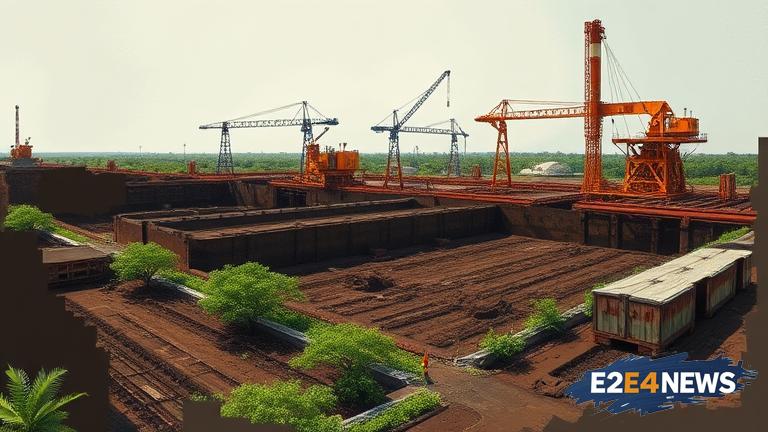In a move that has sent shockwaves through Liberia’s business community, ArcelorMittal Liberia has appealed a lower court’s ruling that held the company liable for bypassing petroleum safety rules. The ruling, which was handed down by the lower court, found that ArcelorMittal had indeed bypassed safety protocols when transporting petroleum products, putting the lives of its employees and the general public at risk. The company has maintained that it did nothing wrong and that the ruling was unfair. However, the appeal has raised concerns over the country’s regulatory environment and its ability to enforce safety standards. Liberia has struggled to balance its need for foreign investment with its duty to protect its citizens and the environment. The case has also highlighted the need for greater transparency and accountability in the country’s business sector. ArcelorMittal Liberia is one of the country’s largest investors, and its operations have had a significant impact on the local economy. However, the company has faced criticism in the past for its environmental and social practices. The appeal is likely to be closely watched by the international community, as it will have implications for Liberia’s reputation as a destination for foreign investment. The country has made significant progress in recent years in improving its business climate, but the appeal has raised concerns that it may be backtracking on its commitments to safety and environmental protection. The Liberian government has faced pressure from civil society groups to take a tougher stance on companies that violate safety and environmental regulations. The appeal is also likely to have implications for the country’s relationships with international donors and investors, who have provided significant support to Liberia’s development efforts. In recent years, Liberia has made significant progress in rebuilding its economy and infrastructure after a devastating civil war. However, the country still faces significant challenges, including poverty, corruption, and a lack of infrastructure. The appeal has also raised concerns over the independence of Liberia’s judiciary, which has faced criticism in the past for being susceptible to political influence. The Liberian government has maintained that it is committed to upholding the rule of law and protecting the rights of all citizens. However, the appeal has raised questions over the government’s willingness to hold companies accountable for their actions. The case has also highlighted the need for greater awareness and education on safety and environmental issues in Liberia. The country has a relatively low level of awareness on these issues, which has contributed to a lack of compliance with safety and environmental regulations. ArcelorMittal Liberia has maintained that it is committed to safety and environmental protection, but the appeal has raised concerns over the company’s willingness to prioritize profits over people and the environment. The appeal is likely to be a lengthy and complex process, with significant implications for Liberia’s business climate and its relationships with the international community. The Liberian government has faced pressure to take a tougher stance on companies that violate safety and environmental regulations, and the appeal is likely to be closely watched by civil society groups and the international community. In conclusion, the appeal by ArcelorMittal Liberia has significant implications for Liberia’s business climate, its relationships with the international community, and its ability to enforce safety and environmental standards. The case has highlighted the need for greater transparency and accountability in the country’s business sector, as well as the need for greater awareness and education on safety and environmental issues. The Liberian government must balance its need for foreign investment with its duty to protect its citizens and the environment, and the appeal is likely to be a major test of its commitment to these principles.
